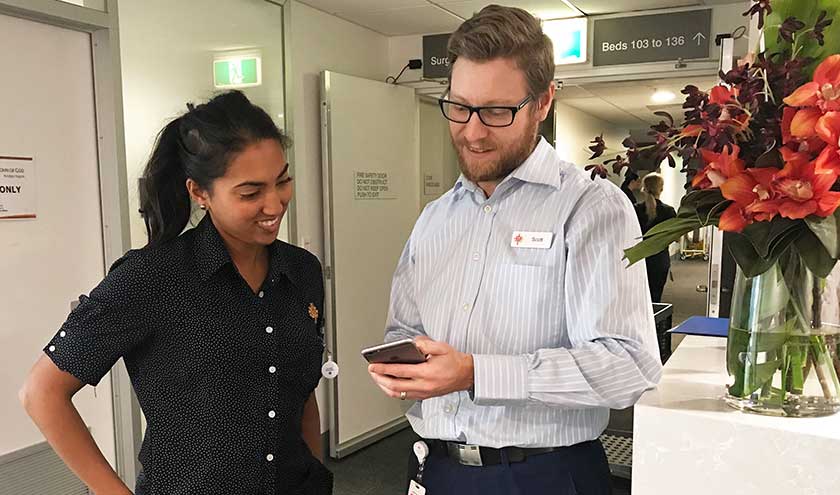Hearing from our patients like never before
Text messages sent directly to patients after their stay are giving our hospitals insights into the patient experience like never before.
24 Aug 2018

The simple text message, which asks patients to rate their experience using the feedback mechanism net promoter score (NPS), is now being sent to all medical and surgical patients and includes the Australian Hospital Patient Experience Question Set (AHPEQS).
St John of God Bendigo Hospital Deputy Director of Nursing Scott Dole said the tool was giving caregivers insights into what patients value.
“Patients are able to easily provide feedback, and we have found that more than 80 per cent of this feedback is positive,” he said.
“From the patient’s perspective, the feedback shows they don’t notice that their medication arrived on time or that their surgery went well – these are just things they expect.
“What they are highlighting is that it is the personal interactions, the one-on-one care and time that our caregivers spend supporting them matters most.”
Scott said the NPS and AHPEQS feedback was helping to reinforce the fundamentals of nursing - that every encounter matters – and to help us improve patient care.
“Managers are able to provide the feedback direct to our frontline teams quickly and efficiently and we are finding that patients are often using the tool to call out exceptional caregivers.
“This is really important as it gives our managers a way to celebrate the day-to-day roles our caregivers play in enhancing our patients’ experiences.”
St John of God Health Care Group Manager Marketing and Corporate Affairs Sally-ann Parker said, as a Mission-based organisation, the insights gathered through this immediate feedback reinforces the importance of ensuring our care is always patient-focused.
“One of the great things about our NPS feedback is that it gives patients the opportunity to not only rate their stay but to comment about their care, which provides the context and highlights of their stay,” she said.
“One piece of feedback that has stuck with me from our Bendigo hospital was from an 80-year-old patient who was seeking care for chronic pain. She highlighted that she felt comfortable and cared for as a human not just a number.
“These are the real insights that I think are beneficial for all our caregivers to hear so they know the difference they have made to the lives of others.”
Scott agreed that feedback highlighting the emotional experiences involved with a hospital stay was the most powerful for caregivers working on the hospital’s wards.
“We always pay attention to and action the negative feedback as soon as possible, but we also share these positive stories so we can keep an eye on what we do well to ensure we don’t lose sight of the little things that matter most to our patients.”
You may be interested in...
